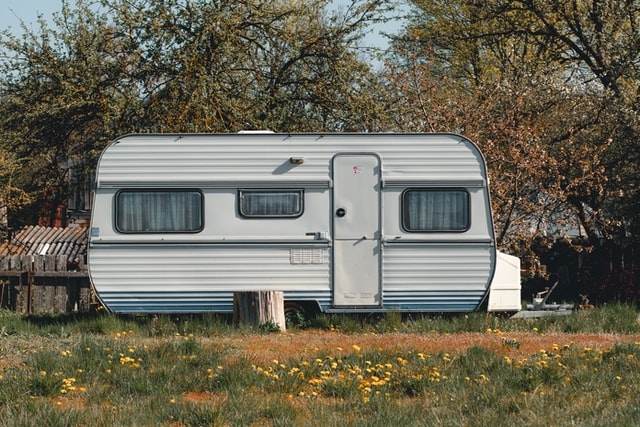Table of Contents
Mobile Home Investing
With the economy fluctuating, more investors turn to the real estate market because of its resilience. Yet, to get the most out of the real estate market, an investor needs to spot trends before they become apparent to everyone, Says Hirav Shah, Noted Real Estate Business Strategist, Adviser and Astrologer.
On that note,Mobile home parks (a.k.a. manufactured housing communities) have become a darling of private equity over the past few years, and rightfully so. The simple, powerful supply and demand imbalance provides a compelling investment thesis.
Investors are always looking for a solid place to invest their money that provides safety (preservation of capital) and a great return on their investment (ROI). Investing in a Mobile Home is a good idea, it’s just like owning a house, or apartment, or a commercial property, Opines Hirav Shah.
Most Mobile Homes are located in communities or parks. 90% of the time the standards for living in the parks are that, you should possess the Mobile Home yourself. Make certain to check with the recreation center chief first before purchasing a Mobile or Manufactured Home as an investment.
The property laws are different for Mobile Homes since they are close to home property, not Real property. Ensure that you look at the nearby and State laws administering leasing individual property.
Mobile Homes are less expensive, regularly than different properties, and in this way can be an extraordinary venture, Says Hirav Shah.
Mobile Home Investing: A Beginner’s Guide
1.Before you take the plunge, you need to clearly define your goals and your reasons for getting involved with mobile home parks. You should spend time thinking about how investing in the mobile home park business can assist you in achieving your personal goals and the goals you have for your family.
2.Once you clearly define your goals, you can focus your attention on narrowing the specific criteria you’re seeking in a park. Crystallizing these criteria will help you focus on the properties that will make your goals a reality.
The following is a list of questions to ask yourself once you’ve clearly defined your goals:
-
- What size parks should I focus on?
- What type of financing can I get?
- What type of problems do I want to solve?
- What type of problems do I want to avoid entirely?
- What type of tenant base do I want to manage?
- Am I comfortable with private utilities?
- What is my threshold for certain property risks?
- What is my risk tolerance?
- Should I seek opportunistic, value-add, core-plus or core assets?
3.As you dive into the space, ensure you’ve done your due diligence on how to appropriately value a mobile home park asset. While the basic underwriting tenets are consistent across commercial real estate asset classes, each niche has its idiosyncrasies. In mobile home parks, not all rental income should be treated equally.
Benefits
- Stable Cash Flow – Acquiring positively cash-flowing mobile home parks with further upside provides buyers with a solid margin of safety. The stable cash flow generated by mobile home parks reduces investor risk.
- Mobile Homes Rentals Offer A High Rate Of Return (ROI) – A good return on investment is the pillar rule for wise investing. Most real estate investments require a highly leveraged mortgage position and a good appreciation rate in order to provide a solid ROI. Mobile homes can offer a great return without any leverage or appreciation.
- Mobile Homes Are Inexpensive To Renovate – It is possible to completely renovate a mobile home for investment at a fraction of what it costs to do a traditional home.
- Mobile Homes Are Inexpensive To Maintain – The systems in a mobile home (plumbing, HVAC, electrical) have much easier access than in a stick-built home. Mobile homes tend to be smaller than most stick-built homes. It costs people far less to maintain a mobile home over the long haul than a traditional property.
- Mobile Homes Have A Large Market Interested In Renting Them – There is a far larger population of average to less than average income earners in most areas, so it is easier to rent out mobile homes to quality tenants.
- Low Tenant Turnover -In most cases, once a mobile home is moved into a park, that home will stay for many years. Often, if a resident wants to move, they resell the home, which gains you a new tenant.
- Accelerated Depreciation Time Frame- Mobile home parks are tax-efficient. Much of the purchase price can be allocated to capital improvements (e.g., roads, underground utilities, etc.). These items are depreciated over an accelerated 15-year time frame versus the standard 27.5 years for residential real estate or 39 years for commercial real estate. Recent updates to the tax code further expedite the process through favorable language regarding bonus depreciation.
- Recession Resistant – Mobile home parks outperformed other real estate sectors during the most recent recession. Demand for the product (affordable housing) actually increases as the economy tightens. The unique, favorable economics of mobile home parks produce superior risk-adjusted returns for investors.
Final Thoughts
With large private equity firms now seeing the merits of mobile home park investing, is there still an opportunity for you to consider mobile home park investing?
Absolutely.
In time, it is believed the more sophisticated investors will certainly jump into the space.
The question is: Will you?
Real estate investing, even on a very small scale, remains a tried and true means of building an individual’s cash flow and wealth…Hirav Shah Concludes.



































